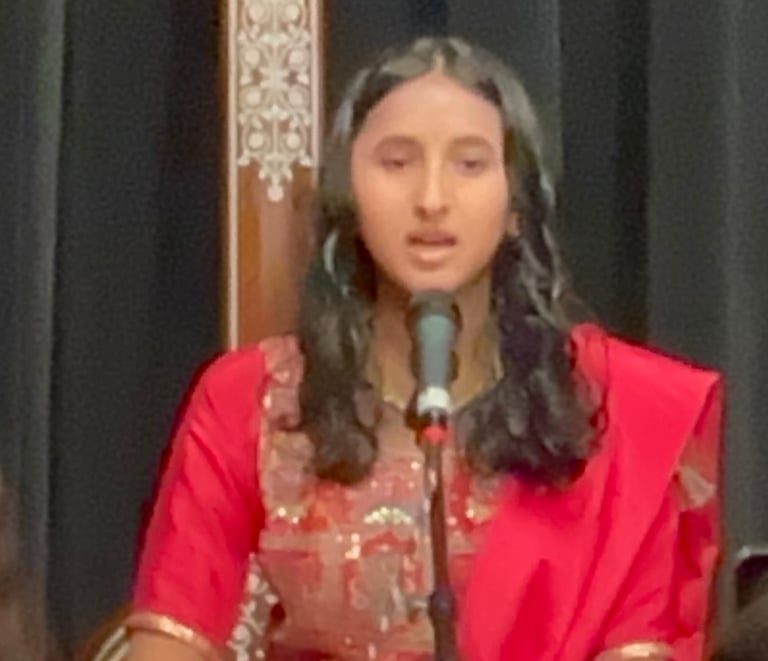The Physics Behind Amazing Singing (Why Some People Sound Better Than Others)
Why Some People Sound Better Than Others?
Saumya Wagh
1/21/20252 min read


The Mind-Blowing Physics Secret Behind My Favorite Singer's Voice!
Have you ever wondered why some people sound amazing when they sing while others (no offense to my anyone) sound like they're strangling a cat? I got totally obsessed with this question after one of my music sessions with my Indian classical music teacher. I decided to delve deeper into this problem.
It's All About Sound Wave Magic!
Here's what's absolutely crazy - singing is literally just physics in action! When someone hits the perfect note, their vocal cords vibrate at exactly the right frequency. An A note is exactly 440 vibrations per second! Some people can naturally control these tiny vibrations with incredible precision.
I downloaded this super cool app that shows your voice as actual sound waves in real time (yes I'm that much of a science nerd and totally proud of it). When I compared different singers, the difference was shocking! Amazing vocalists produce these beautiful, clean, regular waves while less trained voices create more chaotic patterns.
But here's the part that made me literally gasp - every single note isn't just one frequency! It's a main frequency plus all these "harmonics" or "overtones" that give each voice its unique signature sound. Think of it like a recipe where the perfect combination of ingredients creates something magical.
The Physics Advantage Some People Have
This is where genetics gets kind of unfair honestly! Some people are born with naturally better "resonance chambers" in their throat and mouth that amplify certain frequencies perfectly. It's like having premium built-in sound equipment!
There's also this thing called "constructive versus destructive interference" - basically some people's sound waves naturally work together to create stronger, richer tones while others have waves that kind of cancel each other out.
You Can Actually Use Physics to Improve!
The amazing part is that understanding this science means anyone can get better! I've been experimenting with that wave visualization app and it's like turning singing into the world's coolest physics experiment. You can literally see when you're hitting the right frequencies and watch your harmonics balance out in real time.
By understanding resonance, you can position your tongue and jaw to create optimal sound spaces. Even breath control is pure physics - controlling airflow creates consistent sound wave energy!
Let's Explore!
I'm completely fascinated by how physics explains something as artistic as singing! The best part? Understanding the physics means anyone can improve their singing by applying these principles. But even singing requires a lot of practice as well. With this maybe there's hope for all the would-be singers.
Have you ever wondered about the physics behind your favorite singer's voice? Try downloading a voice analysis app and see your own sound waves, it's crazy what you will discover!
